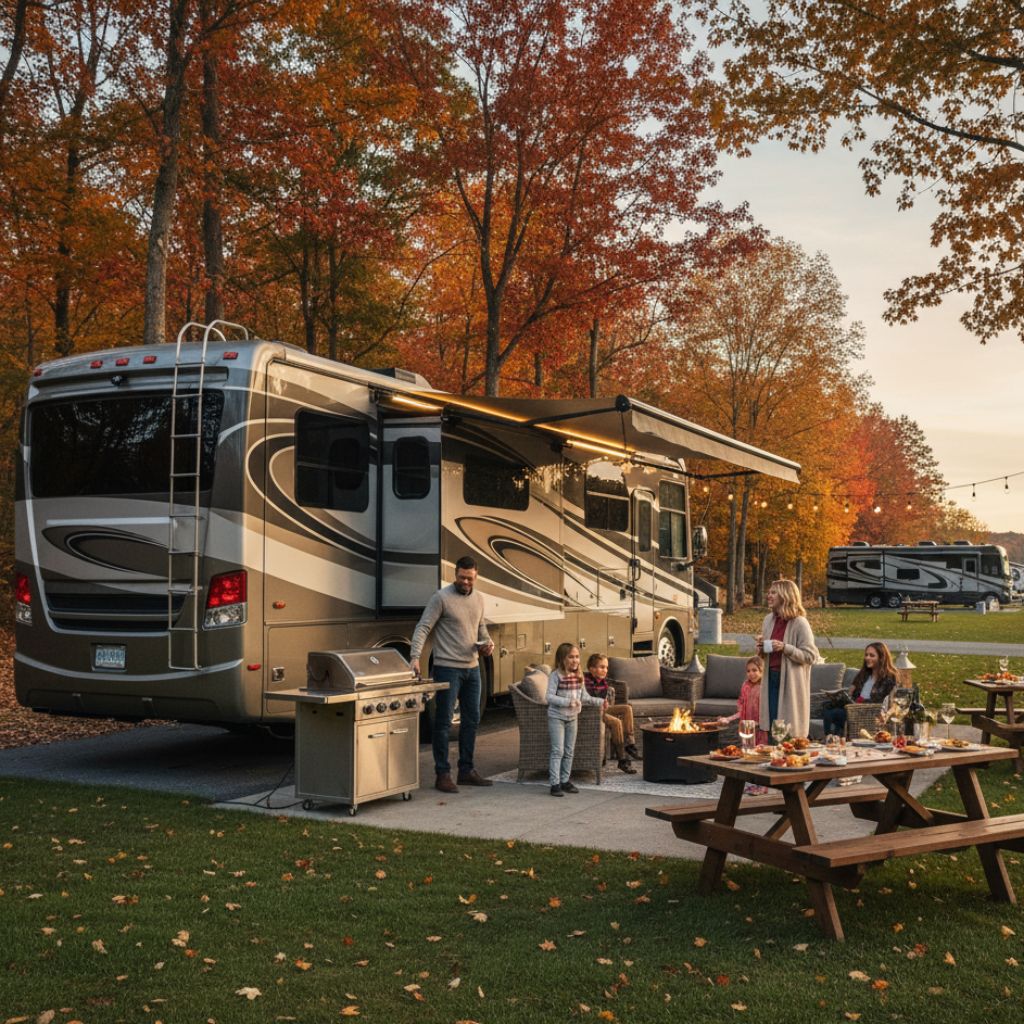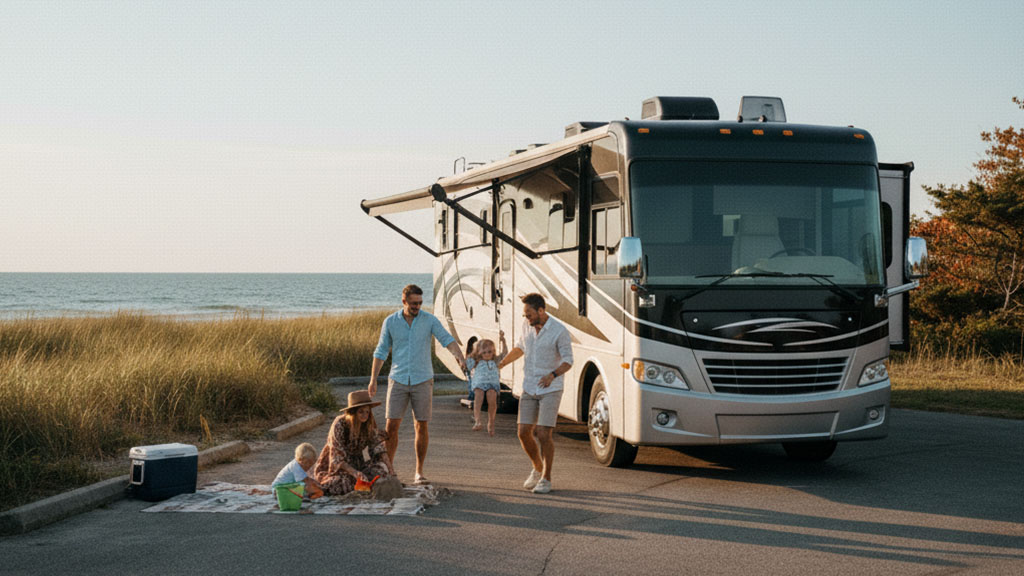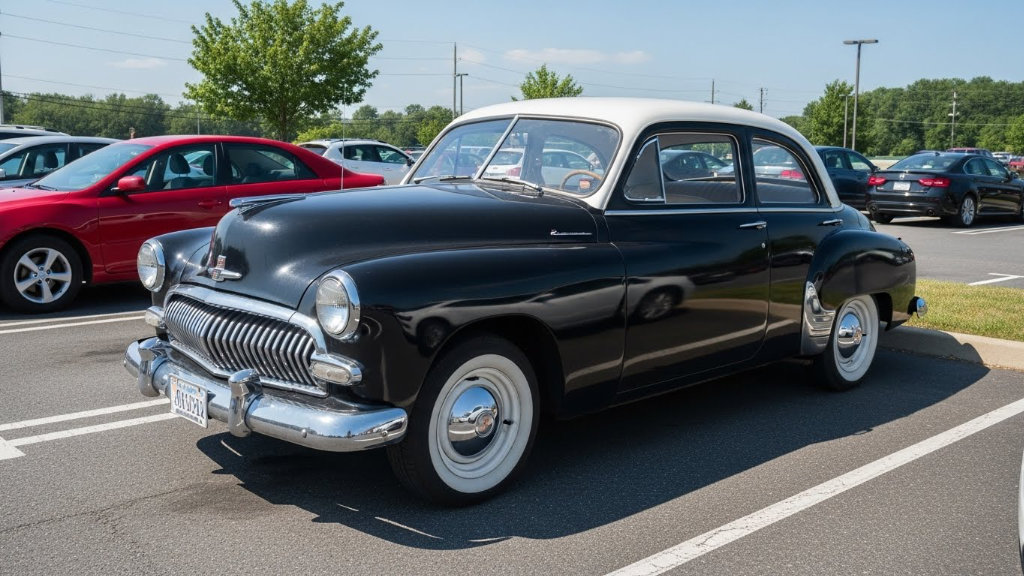Yes — an LLC (Limited Liability Company) can own an RV. Many RV owners structure ownership this way to gain personal liability protection, separate business finances, simplify rental operations, and in some cases unlock tax advantages when the RV is used for business.
But here’s the bigger decision:
Should you put your RV into an LLC?
This guide uses insights from trusted sources like Outdoorsy, RVshare, BizReport, and others to break down the benefits, risks, and steps involved.
What It Means When an LLC Owns Your RV
What Is an LLC in Plain English?
An LLC is an entity separate from you personally. If your RV is titled in the LLC’s name, the company is the owner — not you.
How LLC Ownership Works
- The title and registration list the LLC.
- Members (you and/or others) manage the company.
- Insurance must match the titling to maintain protection.
- You can still drive the RV normally — you just operate a company-owned asset.
To understand basic LLC structure, the U.S. Small Business Administration offers a clear breakdown.
Why Put an RV in an LLC?
1. Liability Protection
If your RV is used for rentals or business and someone gets injured, lawsuits target the LLC, not your personal assets. This is one of the main reasons rental operators choose LLC ownership, echoed by guides like TRUiC and community discussions on Good Sam.
2. Clean Separation of Finances
LLC ownership lets you:
- Separate personal vs business expenses
- Maintain cleaner books
- Prepare for tax season more easily
Sources like BizReport’s RV LLC guide walk through why separation matters.
3. Possible Tax Advantages
When the RV is used for legitimate business activities, an LLC may allow:
- Depreciation
- Insurance, maintenance, and interest deductions
- Write-offs tied to rental income
Outdoorsy highlights these potential benefits in their article on LLC vs. sole proprietorship for RV rentals.
4. More Professional Image
Platforms like RVshare emphasize that an LLC can help:
- Build trust with renters
- Handle partnerships
- Formalize shared ownership
Compliance, Title & Registration Considerations
Forming the LLC
Forming an LLC typically involves:
- Filing Articles of Organization
- Choosing a registered agent
- Obtaining an EIN
- Drafting an operating agreement
The SBA’s business structure guide and your state’s Secretary of State site provide step-by-step instructions.

Transferring the RV Title to the LLC
Once the LLC exists, transferring the title resembles selling the RV to your own company. Depending on the state, you may owe:
- Title transfer fees
- Registration fees
- Sales or use tax
RV owners often discuss state-specific concerns in forums like the RV Dreams Forum on Montana LLC motorhome titling.
Registration & Insurance
Both registration and insurance must match the LLC’s name.
Rental operators using platforms like Outdoorsy or RVshare often carry commercial or hybrid policies — a point reinforced across their rental business guides.
Ongoing LLC Compliance
To protect liability benefits, LLC owners must maintain:
- Annual reports
- State filings
- Separate bank accounts
- Proper documentation
How You Use the RV Matters
Personal-Use RVs
If the RV is strictly for personal vacations, an LLC may add unnecessary costs and complexity without meaningful benefit.
RV Rental Businesses
Owners renting through platforms like Outdoorsy or RVshare benefit most from LLC ownership. These operators can separate rental income, protect personal assets, and maintain cleaner taxes.
Full-Time RVers & Digital Nomads
If your RV supports a broader business — content creation, consulting, events — an LLC may streamline deductibility and accounting.
Shared Ownership
Friends or family jointly purchasing an RV often use an LLC to formalize:
- Ownership percentages
- Usage schedules
- Expense sharing
- Exit agreements
Risks & Common Misunderstandings
1. Using an LLC Only to Avoid Taxes
Many people explore LLC setups after reading discussions about Montana titling on forums like RV Dreams.
However, using an LLC solely to dodge tax — without a real business purpose — can trigger:
- Audits
- Use-tax liability
- Penalties
2. Financing Limitations
Some lenders hesitate to finance RVs under LLCs; others require personal guarantees.
3. Insurance Gaps
If the RV is titled in the LLC’s name but insured personally, claims may be denied — a risk discussed frequently in Good Sam’s RV ownership forums.
4. Piercing the LLC Veil
You lose liability protection if:
- You mix personal and business funds
- Skip compliance requirements
- Treat the LLC like a personal extension
Step-by-Step: How to Put an RV Into an LLC
1. Decide Your Strategy
Clarify your goal: liability protection, rentals, shared ownership, or business use.
Guides like those from BizReport and TRUiC offer helpful planning frameworks.
2. Form the LLC
- File formation documents
- Get an EIN
- Draft an operating agreement
- Establish a business bank account
3. Transfer the Title
- Sign the title to the LLC
- Provide LLC documents
- Pay transfer fees
- Re-register the RV
4. Update Insurance & Banking
- Use a policy that covers LLC ownership and rental activity
- Keep all financial activity in an LLC-specific bank account
5. Maintain Compliance
- Annual reports
- Corporate recordkeeping
- Separating finances
Where Ride Legal Fits In
Ride Legal helps RV owners navigate:
- Title transfers into LLCs
- Multi-state registration challenges
- Tax-sensitive ownership structures
- High-value RV or motorhome registration
The Ride Legal team specializes in handling non-standard and multi-state setups so you can avoid paperwork, confusion, and costly mistakes while ensuring compliance from day one.
Is an LLC Right for Your RV? A Quick Checklist
You may benefit from titling your RV under an LLC if you:
- Rent out your RV
- Use it for business or events
- Have multiple owners involved
- Want to protect high-value assets
- Need to separate finances for tax or operational clarity
If none of these apply and your RV is just for personal leisure, an LLC may be unnecessary.
FAQ: LLCs & RV Ownership
Can any type of RV be owned by an LLC?
Yes. Any type of RV can be owned, titled, and registered under an LLC as long as the state’s titling requirements are followed. This applies to:
- Class A motorhomes
- Class B campervans
- Class C motorhomes
- Fifth wheels
- Travel trailers
- Toy haulers
- Pop-up campers
- Bus conversions and skoolies
- Custom or specialty RV builds
From a compliance standpoint, states do not restrict RV types based on ownership structure — the key requirement is that the LLC is properly formed, and the title, registration, and insurance all match the LLC’s name.
Do I have to use the RV only for business?
No. You do not have to use the RV exclusively for business just because it’s owned by an LLC. Many owners use their RVs for both personal trips and business or rental activity. However, there are a few important rules to understand:
- Personal use is allowed, but it must be properly documented—especially if you are taking business-related tax deductions.
- The IRS expects that any business deductions (depreciation, expenses, mileage, etc.) reflect actual business use, not personal vacations.
- If you rent the RV through platforms like Outdoorsy or RVshare, the LLC ownership simply formalizes the business side while still allowing members to use it personally.
- Your insurance policy must match your use. If the RV is used for rentals and personal travel, you need a policy that covers both.
In short: LLC ownership doesn’t restrict personal use — it just requires clear documentation, correct insurance, and honest tax reporting.
Is there sales tax on RVs in Montana?
No. Montana does not charge sales tax on RVs, motorhomes, or vehicles of any kind. This is why some RV owners explore Montana-based LLC structures. However, even if you purchase or title an RV through a Montana LLC, you may still owe use tax in the state where the RV is primarily stored or used. Always consider your home-state regulations before using an out-of-state structure.
Can you put an RV in a business name?
Yes. You can title and register an RV under a business name, such as an LLC, corporation, or partnership. This is common for RV rental businesses, shared-ownership arrangements, and owners seeking liability protection or tax-deductible business use. Just remember that:
- The business must appear on the title and registration.
- The insurance policy must match the business owner.
- Business-owned RVs may require commercial or hybrid insurance.
- Personal use is allowed, but it must be properly documented for tax purposes.
Final Verdict
An LLC can own an RV — and for many owners, particularly those renting their rig or needing asset protection, it’s a strong strategy supported by industry resources like Outdoorsy, RVshare, and BizReport.
But the benefits depend on your use case. Personal RV owners may find the added cost unnecessary, while business users often find it essential.
If you’re exploring LLC structuring, multi-state titling, or professional RV registration help, Ride Legal can handle the entire process for you — clean, compliant, and frustration-free.



